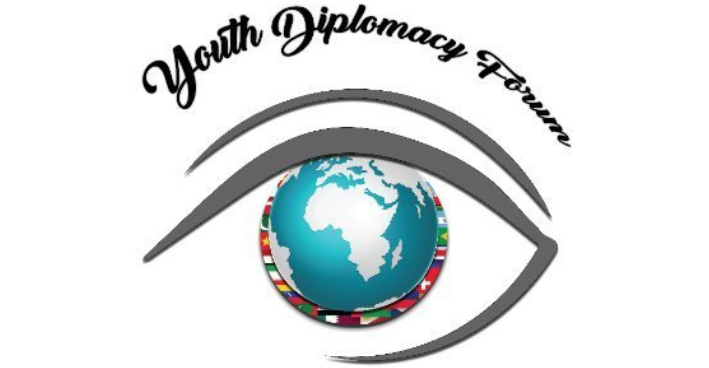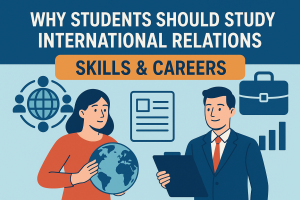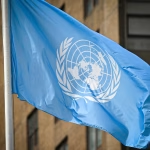Why Students Should Study International Relations: Skills, and Career Opportunities
In our fast changing world, global challenges like wars, climate change, economic crises, and cultural clashes are becoming more complex every day.
To understand these issues and find solutions, International Relations (IR) is one of the most important fields of study.
It gives us the tools to make sense of the world and prepares students to face real challenges with knowledge and confidence.
Many people still think IR is only about how one country deals with another, but that is only a small part of it.
In reality, IR connects to almost every area of life, politics, economics, environment, technology, and even culture.
From learning howcountries cooperate to solving disputes that could lead to war, IR is the subject that opens our eyes to the bigger picture.
If you switch on the TV or scroll through the news today, almost everything you see, conflicts in different parts of the world, debates on climate change, global trade wars, cyberattacks, or migration crises, relates to international relations.
Students of IR do not just read about these issues, they learn to understand them deeply, analyze them, and think of practical solutions.
That is why IR is a subject that is not only academic but also practical, preparing students for both personal growth and career success.
International relations also helps students understand cultures, religions, and traditions from different parts of the world.
In a time where misunderstandings between nations often lead to tensions, having knowledge about cultural diversity becomes a bridge for peace.
It teaches tolerance, patience, and respect, which are values much needed in our societies today.
Why International Relations is More Than Just Politics
At first sight, international relations may seem to deal only with bilateral or multilateral ties among countries. But the truth is, it covers far more than that.
It explores global history, present day challenges, and the possibilities of future cooperation or conflict.
Think of problems like global warming, artificial intelligence in warfare, or refugee movements, none of these can be solved by one country alone.
They need international dialogue and cooperation. And this is exactly what IR teaches, how to look at these challenges from many perspectives and how to work toward peaceful solutions.
In 2025, the subject has become even more important because of the way technology and globalization shape our world.
Governments are now using artificial intelligence for foreign policy decisions, NGOs are using data analytics for humanitarian aid, and international organizations are working together on climate and security issues.
Students of IR learn not just the theory, but also how to deal with these real worldchallenges.
IR also touches the daily lives of ordinary people. Global trade affects the prices of food and fuel, international health policies affect how quickly vaccines reach us, and migration policies affect families and workers everywhere.
Understanding IR gives students the ability to see these hidden links, and once you see the connections, the world makes more sense.
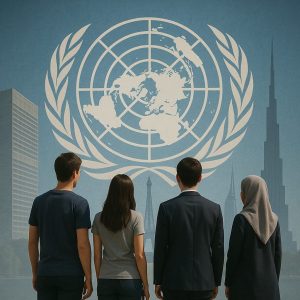
Skills You Gain in International Relations
One of the best things about studying IR is the set of skills it gives to students. These skills are not limited to politics or government jobs but can be applied in many fields of life. Let us explore them in detail:
Communication
Communication is one of the most powerful skills students develop in IR. It is the ability to explain ideas clearly, negotiate with others, and connect across cultures. Group discussions, debates, and even simulations of UN meetings help students polish this art.
In 2025, communication is not just about face to face dialogue. Diplomats and policymakers now use social media for public diplomacy and digital platforms to connect with people globally.
For example, during global crises like natural disasters or conflicts, fast and clear communication saves lives. Surveys show that more than 70% of international organizations now demand strong digital communication skills in their staff.
Communication also builds confidence. A student who practices public speaking in class debates can later present ideas to large audiences or defend their position in serious negotiations.
This skill is not limited to politics, it helps in everyday jobs like teaching, business, or even community leadership.
Analytical Skills
Analytical skills mean the ability to look at a situation carefully, break it into parts, and understand what is really happening. IR students use this skill when they study world events, predict outcomes, or advise on policy.
Today, these skills also include working with big data, AI predictions, and online research. Think tanks and governments are increasingly using AI tools to track disinformation campaigns, predict conflicts, and understand economic trends.
For example, in 2024, researchers used AI models to predict migration flows in Europe due to climate change. Such tools show why strong analytical skills, combined with technology, are more important than ever.
Analytical skills also teach patience. A student learns to avoid rushing to conclusions and instead gathers facts from history, current events, and different perspectives.
This makes them better problem solvers not just in global matters, but also in their personal and professional lives.
Conflict Resolution
Conflict resolution is at the heart of IR. The subject itself was born from the desire to end wars and prevent human suffering. Students study past wars and peace agreements to learn why conflicts start and how they can be solved.
Conflict resolution skills include negotiation, peace talks, sanctions, dialogue, and diplomacy. In today’s time, this also means handling new types of conflicts, such as cyber warfare, energy disputes, and climate related conflicts.
For example, water scarcity in some regions is already becoming a source of tension, and IR experts are working on policies for water sharing agreements. Learning this skill not only makes students better scholars but also potential peacebuilders in the real world.
Conflict resolution is also a personal life skill. It helps students solve disagreements peacefully in workplaces, families, or communities.
In this way, IR is not only about global conflicts, but also about shaping better individuals.
Careers and Opportunities in International Relations
Students often worry about what they can do with a degree in IR. Because of lack of awareness, many hesitate to choose this subject. But in reality, the career opportunities in IR are vast and growing. Here are some of the most exciting paths:
Policy Advisor Helping governments or organizations make wise decisions on foreign and domestic issues.
Political Consultant Analyzing political situations and guiding campaigns or strategies.
Journalist or International Correspondent – Reporting on global affairs for TV, radio, newspapers, or online platforms.
Spokesperson in a Non Governmental Organisation (NGO) – Speaking for NGOs working on humanitarian, health, or development issues.
Special Serviceman at United Nations branches – Serving in different UN bodies like UNICEF, WHO, or UNDP.
Member in International and National Think Tanks – Researching global issues and publishing recommendations for policymakers.
Security Analyst in Armed Forces – Analyzing threats and helping the defense sector prepare strategies.
Cybersecurity and Information Warfare Specialist – With digital threats increasing, IR experts who understand global law and cyber policy are in high demand.
Climate Policy and Sustainability Expert – Working with governments and organizations to design climate strategies and manage global environmental challenges.
These careers show that IR is not only about working in embassies or governments. It can lead to jobs in media, NGOs, research, defense, and even technology.
According to a 2025 employment outlook, global organizations are looking for more professionals with IR backgrounds because of the rising need for cross border cooperation.
IR careers also bring adventure. Diplomats travel to different countries, journalists cover stories from conflict zones, and climate experts visit regions affected by disasters.
For students who dream of working beyond their hometowns, this subject provides opportunities to see the world and make a difference at the same time.
Why Students Should Study International Relations
IR is not just a subject, it is a mindset. It teaches students to think globally while acting locally. By engaging in debates, reading daily news, and analyzing global events, students become more aware of the world around them.
This awareness is powerful. It allows them to see connections between global and local issues. For example, a rise in fuel prices in one part of the world may affect food prices in another. Refugee movements in one country can lead to cultural challenges in another.
Climate change in one region can disrupt economies globally. Students of IR learn how to connect these dots and think critically.
In 2025, with the growing impact of climate change, migration crises, digital disinformation, and global economic shifts, IR students are more needed than ever.
They are the people who can guide societies toward peace, cooperation, and sustainable solutions.
Studying IR also shapes personal values. It teaches patience, tolerance, and respect for diversity.
It makes students more open minded and ready to work in teams with people from different backgrounds. This personal growth is as valuable as the professional opportunities.
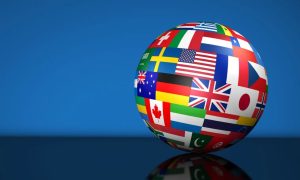
Conclusion
International Relations is more than just a subject to study, it is a pathway to understanding the world and becoming a global citizen.
It equips students with vital skills like communication, analysis, and conflict resolution, while also opening doors to diverse and rewarding careers.
In today’s interconnected world, every news headline is tied to international relations, whether it is about trade wars, environmental challenges, or security threats.
By studying IR, students do not just prepare for careers, they prepare to make a difference in the world.
So, if you are a student thinking about your future, International Relations is a field that offers both knowledge and opportunity.
It gives you the power to understand global challenges and the tools to help solve them.
The world needs more thinkers, diplomats, and problem solvers, and you could be one of them.
This article is written by Nizam Ul Din Brohi, from District Thatta, Sindh. He is currently pursuing a Bachelor’s degree in International Relations at the International Islamic University, Islamabad.
